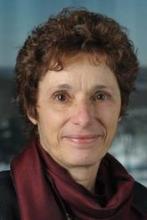The other problem with requiring a full year of adult neurology training is that it takes time away from the child neurology side of training, Dr. Gilbert said.
"You miss getting to see those kids if you’re spending that time in the adult inpatient service managing strokes and high blood pressure, diabetes, and chronic lung disease from smoking," he said.
Dr. Keith R. Ridel, a child neurologist in private practice in Indianapolis, agrees that the requirement for 12 months of adult neurology is outdated.
"Everybody will agree that the adult training is helpful, but how much of that you apply to your practice is debatable," he said.
Dr. Ridel, who works in a large neurology practice, said about a quarter of his patients are adults aged 18-30 years. He estimates that even with such a large number of adult patients, he applies only about half of what he learned during his adult training year to his day-to-day practice.
But other leaders in the field said the adult training year has significant value in creating a foundation of analytical skills for the new neurologist.
Dr. Donna M. Ferriero, who is a neonatal neurologist, said what she learned in her adult neurology training helps her to elicit signs and symptoms in the newborn.
Dr. Ferriero, who chairs the department of pediatrics at the University of California, San Francisco, Benioff Children’s Hospital, said residents today probably don’t need a full year of adult neurology, but they do need to spend a substantial portion of that first year learning about adult neurologic diagnosis and treatment. That type of training could also be incorporated into elective rotations, provided the training spans the developmental spectrum from cradle to grave, she said.
"Fundamentally we’re neurologists and we need neurologic training," she said.
The adult neurology training year also helps residents to build their basic diagnostic skills on patients who are often less complex and more compliant before moving on to children, said Dr. Nina F. Schor, professor and chair of the department of pediatrics at the University of Rochester (N.Y.).
For example, a resident who tried to conduct her first mental status exam on a 3-month-old would likely have a much harder time than if she mastered her skills first on adults and then adapted the exam to make it developmentally and age appropriate, Dr. Schor said.
Dr. Scott Pomeroy, the chair of neurology at Boston Children’s Hospital, said the number of months of adult training is less important than the content. At Boston Children’s Hospital, they already limit residents’ adult inpatient time to 6 months. During the other 6 months, residents participate in an outpatient adult neurology rotation. That rotation gives the residents a fuller picture of adult neurology and knowledge that is applicable to pediatric patients, he said.
"The distinction between adult and pediatric neurology for some diseases is not as striking as it used to be," Dr. Pomeroy said. "We used to think of multiple sclerosis as an adult disease. We now know that’s not true. There’s lots of kids that have it."
Leaders in adult and child neurology need to work together to improve the curriculum, he said. Both adult and child neurology residents would benefit from greater knowledge about neurogenetics, for example.
"If cool minds sat down and hammered out some agreement, we could get out of this ‘how many months of adult neurology’ discussion and into the discussion of how can we jointly improve our training experience," Dr. Pomeroy said. "This other thing is a big distraction."


